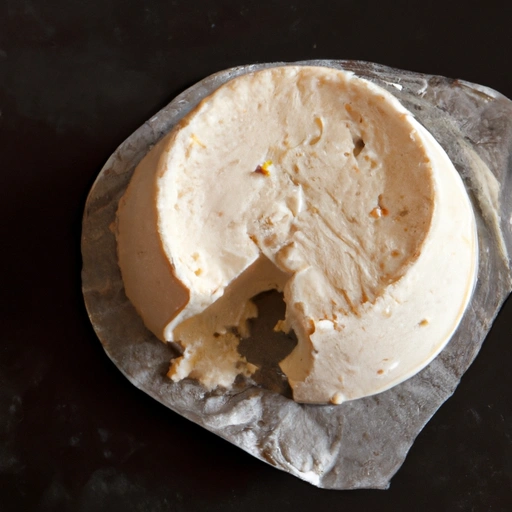Ricotta
Description

Ricotta is a soft, creamy cheese with a mild, slightly sweet flavor, traditionally made from the whey left over from the production of other cheeses. Its texture ranges from smooth and spreadable to slightly granular, depending on the mode of production and duration of aging. It's a versatile cheese used in a variety of dishes, from sweet to savory.
Common uses
Ricotta cheese is widely used as a filling for pasta dishes such as lasagna and ravioli, as a spread on toast, in cheesecakes, and even as an ingredient in fluffy pancakes or as a topping for pizza.
Nutritional value
Calories
Approximately 174 calories per 100 grams (3.5 oz).
Protein
About 11.3 grams (0.4 oz) of protein per 100 grams (3.5 oz).
Fat
Around 13 grams (0.46 oz) of fat per 100 grams (3.5 oz), of which saturated fat is about 8.3 grams (0.29 oz).
Carbohydrates
Contains roughly 3 grams (0.1 oz) of carbohydrates per 100 grams (3.5 oz).
Vitamins
Rich in B vitamins, particularly B12, and a good source of vitamin A.
Minerals
Contains calcium, phosphorus, and zinc.
Health benefits
Ricotta is a good source of protein and calcium, which are essential for bone health and muscle function. The presence of whey protein in ricotta may also support muscle repair and growth.
Potential risks
Because ricotta contains lactose, it may not be suitable for those with lactose intolerance. Additionally, its saturated fat content could contribute to heart disease if consumed in excessive amounts.
Common recipes
Common recipes include stuffed shells, cannoli, and ricotta gnocchi.
Cooking methods
Ricotta can be baked, spread, or mixed into fillings and batters.
Pairing with other ingredients
It pairs well with fresh herbs, tomatoes, berries, honey, and nuts.
Summary
Ricotta is an Italian whey cheese with a rich history and diverse culinary applications. It provides protein and calcium but should be consumed in moderation due to its lactose and saturated fat content. Ricotta is a beloved ingredient in both sweet and savory recipes around the world.